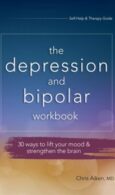The Power of Language with Bipolar Disorder

Many people that I speak to use a lot of “bad” language when talking about Bipolar Disorder. I don’t mean bad words, just words that cause you to change your thought patterns.. What do I mean? Well, I define bad language in this case as language that actually causes you to alter your thinking in a negative way. For example, someone might say “I suffer from Bipolar Disorder.” Or another person might repeatedly say “I’m Bipolar.”
Let’s break just these two statements down. First if you say you suffer from Bipolar Disorder, is that really true? Does it have to be true? My mother hasn’t suffered from the illness for over a year. Neither do many other people who have Bipolar Disorder. Prior to having an entire system in place to help manage her disorder, she did “suffer” from it. And she would certainly let you know how much she suffered. Today, she is not a “Bipolar Sufferer” and doesn’t say she suffers from Bipolar Disorder, because she doesn’t. She leads a normal life.
Now the other statement I hear people say is “I’m Bipolar.” This one really annoys me. I don’t even have Bipolar Disorder and it annoys me. Are you really Bipolar? Or do you have and live effectively with Bipolar Disorder? I argue that you have Bipolar Disorder not that you are IT. Bipolar Disorder is not the defining factor of your life. If you are Bipolar, since the word means having two poles, or duality, it would mean that you are always operating as a dual person. Some might argue against this, but I can clearly see that the people I speak to that are high functioning say they have and manage Bipolar Disorder.
People that have Bipolar Disorder should carefully try to control the language that they use when talking about themselves and the illness. Avoid defining yourself as Bipolar, instead, just as if you had cancer, define yourself as having Bipolar Disorder.
Here are a few of things I would recommend you eliminate:
- I am Bipolar,
- I suffer from Bipolar Disorder.
- I am crazy.
- I can’t [and something comes next].
- My medicine never works.
- I can’t find the right medicine.
- Nothing will work for me.
You can see that when you start saying statements like this, you internase these falsehoods ultimately, causing them to be true and ultimately causing the very thing that you don’t want to actually occur.
Take some time, right now and think of negative statements you are saying. Change the language to a more positive message. See how this works after 30 days of doing it. I bet you it will work wonders.
Some positive statements you can replace the negative statement with are:
- I have been diagnosed with Bipolar Disorder and my doctor helps me manage it effectively.
- I need the challenges of dealing with Bipolar Disorder using the techniques and medications my doctor recommends.
- I have a disorder but I am not crazy. I just have a disease that can be treated.
- I can do anything, within reason, that I wish to do, provided my doctor does not disagree with the proposed activity.
- Some medications have not worked for me, but my doctor has many medications and he will help me find effective solutions through medication.
- I must take my medication as prescribed for it to be effective and help me management my disorder.
- As I learn management techniques and incorporate them into my life, they will work effectively for me. I may have to try several techniques to learn which work best, but there are management techniques that will work well for me.
- I will never allow my disorder to define who I am. I will live life to the fullest and enjoy life.
- I will follow my doctor’s order to prevent unpleasant episodes that disrupt my life.
High functioning people with Bipolar Disorder use the positive statement and thought pattern in there day to day lives. Those who do not effectively manage this disorder often use the negative thought patterns and statement in their lives.
The difference in effective living with Bipolar Disorder and living in unhappiness with many episodes is simply the way you think about and talk about your disorder.
The disorder is NOT your fault. It is not the result of something you did or didn’t do. It is largely genetic and when not part of a family history, it is a disorder that is, quite simply, just like any disorder such as arthritis, diabetes or another disorder. You are not the reason for the disorder happening to you.
Learn to live life to the fullest in spite of your disorder. Do not allow the disorder to completely and totally control you and make your life miserable and limited. Enjoy life; make your life the best that it can be while controlling your disorder with the help of qualified health care professionals and medication they may prescribe taken per their orders. You’ll be much happier for this.








